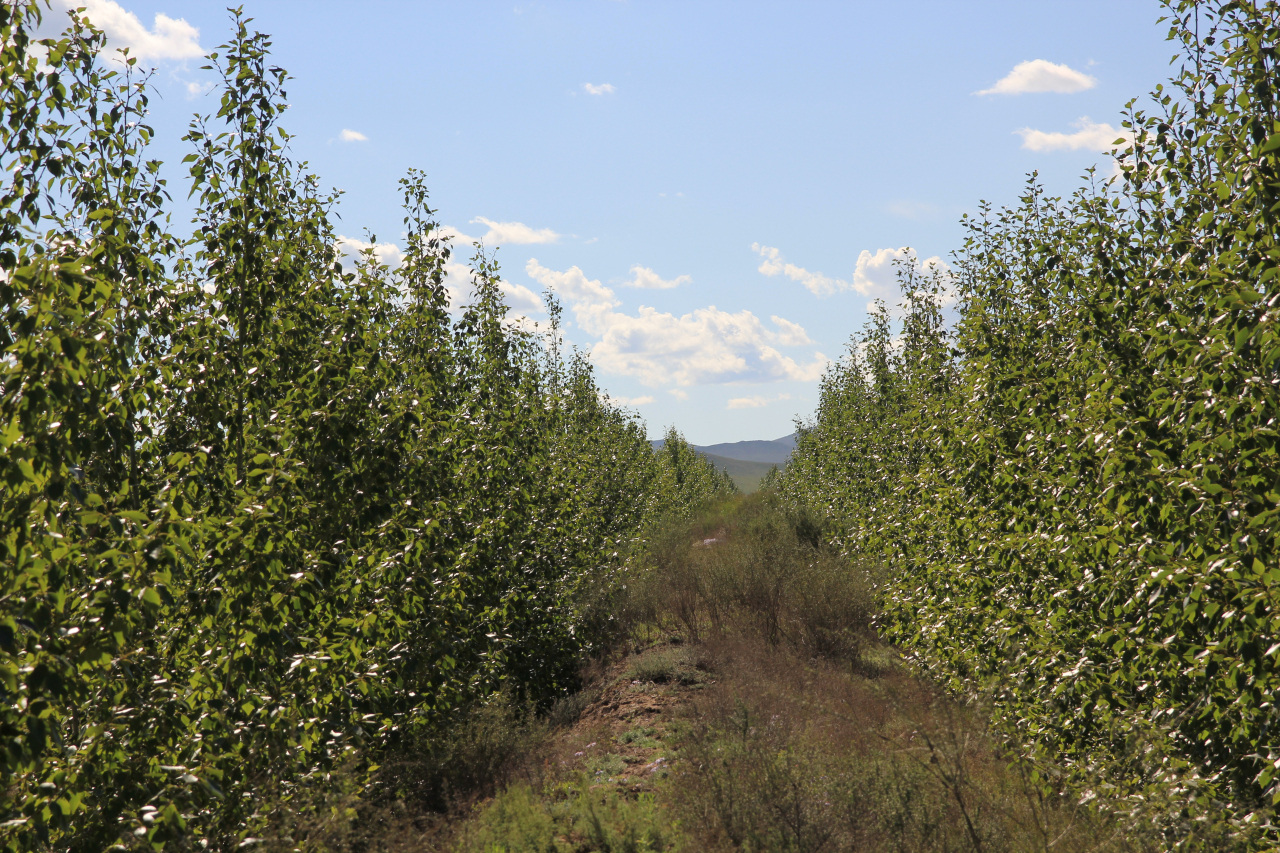
June 17 marks the United Nations' World Day to Combat Desertification and Drought, commemorating the adoption of the United Nations Convention to Combat Desertification in 1994. The spread of desertification in Northeast Asia is not only a significant cause of springtime fine dust pollution in Korea but also a transborder issue affecting neighboring countries. In recent years, the incidence and scale of fine dust storms have been increasing due to climate change, desertification and drought, becoming a problem that requires international cooperation for desertification prevention.
The Korea Forest Service has been actively preventing the spread of desertification. As its first step, KFS proposed the Northeast Asia Desertification, Land Degradation and Drought Network, involving Korea, China, and Mongolia. The network was launched in 2011 with the KFS serving as its secretariat. The KFS has operated programs for desertification and dust storm prevention while establishing partnerships to develop national action plans and to solve land degradation issues in the Northeast Asian region.
In a joint effort to fight desertification, the governments of Korea and Mongolia established the Korea-Mongolia Green Belt Initiative in 2007, as part of a comprehensive intergovernmental plan to mitigate the damages caused by desertification. Over the course of a decade-long campaign, approximately 3,000 hectares of forests have been restored, instilling hope among the Mongolian government and its citizens. This initiative has also influenced legislative and societal shifts, leading to the enactment of laws and regulations to commemorate Arbor Day and prevent land degradation and desertification.
Given the recent climate change-induced natural disasters and the escalating desertification crisis, the international community emphasizes the utilization of Nature-based Solutions. Forests not only serve as carbon sinks to combat climate change but also contribute comprehensively to various social and environmental issues, such as biodiversity conservation.
During the 26th Conference of the Parties to the United Nations Framework Convention on Climate Change held in 2021, major advanced countries announced the Global Forest Finance Pledge, aimed at preventing deforestation, and land degradation, and facilitating restoration. Korea, having received developmental aid from advanced nations to restore degraded lands, actively participated in this pledge as well, fulfilling its role as a bridge between developed and developing countries in the field of forestry.
According to the 2022 Global Forest Resources Assessment published by the Food and Agriculture Organization, sustainable forest management can aid in global recovery from the pandemic, while addressing the crises related to climate change and biodiversity loss. Eliminating deforestation and preserving forests can protect more than half of the Earth's biodiversity, also reducing annual carbon dioxide emissions by 3.6 gigatons from 2020 to 2050.
The Korea Forest Service, through the Changwon Initiative, launched during the 2011 UN Convention to Combat Desertification conference, has achieved remarkable success in policy formulation regarding desertification and land degradation by supporting afforestation projects and scientific capacity building in developing countries.
“This year marks the 50th anniversary of our nationwide forestation efforts, one of the nation’s key achievements acclaimed globally. Forests are carbon sinks and nature-based solutions for climate challenges. Based on our own successful greening experience, we will continue to contribute to the international community,” said an official of the forest agency.
By Kim So-yeon (sera13@heraldcorp.com) and Lee Kwon-hyung (kwonhl@heraldcorp.com)





